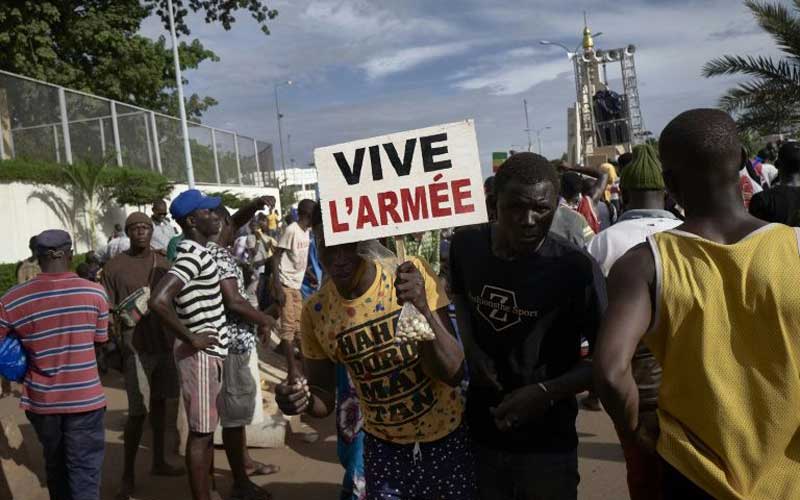×
The Standard e-Paper
Stay Informed, Even Offline

Mounting opposition to the military role in post-coup Mali contrasts with a rally in September to applaud the army for forcing out the country's unpopular president. [AFP]
A leading opposition group on Wednesday warned of a military stranglehold on Mali's post-coup government and called for "resistance.... to save democracy" in the Sahel state.